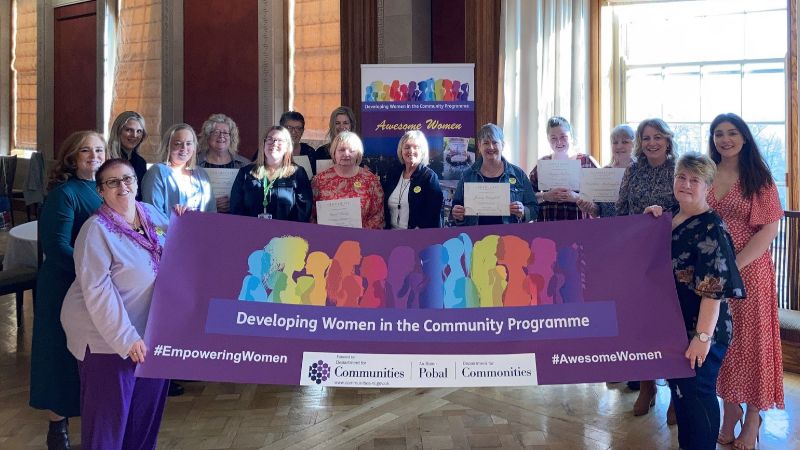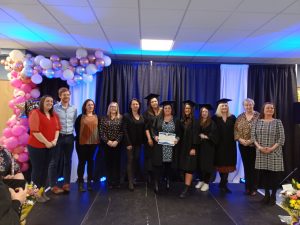Developing Women in the Community: A formative pre/post evaluation
Dr Colm Walsh

The current phase of the Executive Programme on Paramilitarism and Organised Crime runs between 2021 and 2024. With an overall aim of fostering of ‘safer communities that are resilient to paramilitarism, criminality and coercive control,’ the Programme focuses on supporting people and communities across Northern Ireland who are vulnerable to paramilitary influence.
This high-level outcome has been translated into two end-benefits; People and communities are safe from the harm caused by paramilitarism, and Safer communities, resilient to paramilitarism, criminality and coercive control.
In 2021, the Department for Communities (DfC) launched its programme to target and support women in communities where paramilitary influence is most enduring. The programme sought to contribute towards the attainment of Benefit 2 (Safer communities, resilient to paramilitarism, criminality and coercive control).
The aims of the programme were to provide women with the skills, knowledge and confidence to become influencers in their own areas, and to take on leadership roles.
Embedded within the programme is access to new opportunities, whilst simultaneously addressing the barriers that prevent women from civic engagement. DfC has committed to contributing towards the attainment of the high level outcomes through five key benefits. These include improving how issues relating to paramilitarism are discussed, facilitating the involvement of people in their local communities, strengthening of local networks, increasing local skills and expertise, and contributing towards attitudinal change and undermining the legitimacy of paramilitary groups at a local level
In the first year of the programme being led by DfC, local organisations were invited to bid for resources of up to £30,000 to run a project at a local level that would respond to local need and contribute towards the realisation of these benefits. Potential delivery partners were invited to consider the inclusion of prescribed modules, the thematic focus of which included:
- Confidence and self-esteem
- Communication skills
- Personal development
- Teamwork and collaboration
- Self-awareness
- Roles of women within families/communities
- Problem solving
- Leadership
 Applications for the first round of funding closed 4th October 2021, with successful organisations commencing their activities between December 2021 and January 2022. It was expected that the projects should last approximately 12 weeks and be completed before 31st March 2022.
Applications for the first round of funding closed 4th October 2021, with successful organisations commencing their activities between December 2021 and January 2022. It was expected that the projects should last approximately 12 weeks and be completed before 31st March 2022.
The aim of this formative evaluation was to inform the design and delivery of the programme.
To download this report, please click on the link below.
